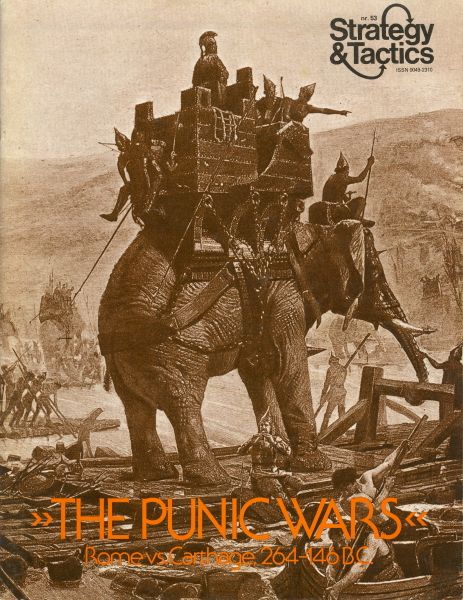The Punic Wars: Rome vs Carthage, 264-146 B.C. (1975) Board Game
The Punic Wars were a series of three wars fought between Rome and Carthage from 264 BC to 146 BC. These wars were pivotal in shaping the power dynamics of the ancient Mediterranean world, with Rome emerging as the dominant force after defeating Carthage. The conflict was fueled by territorial disputes, trade rivalry, and a quest for dominance in the region.
Game Components of The Punic Wars: Rome vs Carthage, 264-146 B.C.
How To Setup The Punic Wars: Rome vs Carthage, 264-146 B.C.
Setting up the game involves placing the counters on the board according to the initial deployment specified in the rulebook. Players need to familiarize themselves with the game cards and the rulebook to understand the starting conditions and the sequence of play.
Gameplay Mechanics and Game Objective
Player Experience
The Punic Wars offers a deep strategic experience, appealing to history buffs and fans of wargames. Players must balance resource management, military expansion, and diplomatic maneuvers to achieve victory. The game’s complexity and historical context make it engaging but also demanding, requiring careful planning and execution.
Pros
Cons
Personal Thoughts on The Punic Wars: Rome vs Carthage, 264-146 B.C.
This game is ideal for experienced wargamers and history enthusiasts who appreciate detailed, strategic gameplay. It is not suited for casual gamers or those new to complex board games due to its complexity and lengthy playtime. However, for those who enjoy immersing themselves in historical scenarios and deep strategy, The Punic Wars offers a rewarding and challenging experience.
We are supported by our audience. When you purchase through links on our site, we may earn an affiliate commission, at no extra cost for you. Learn more.

